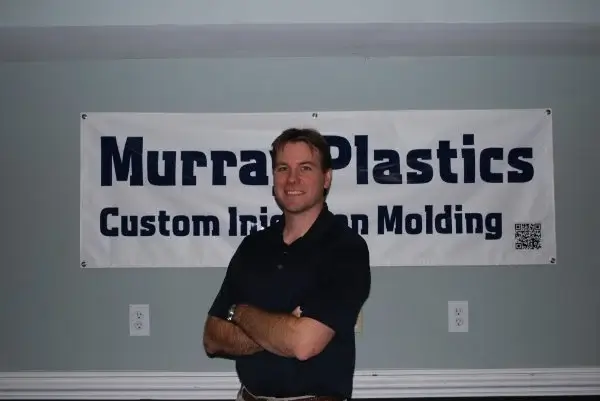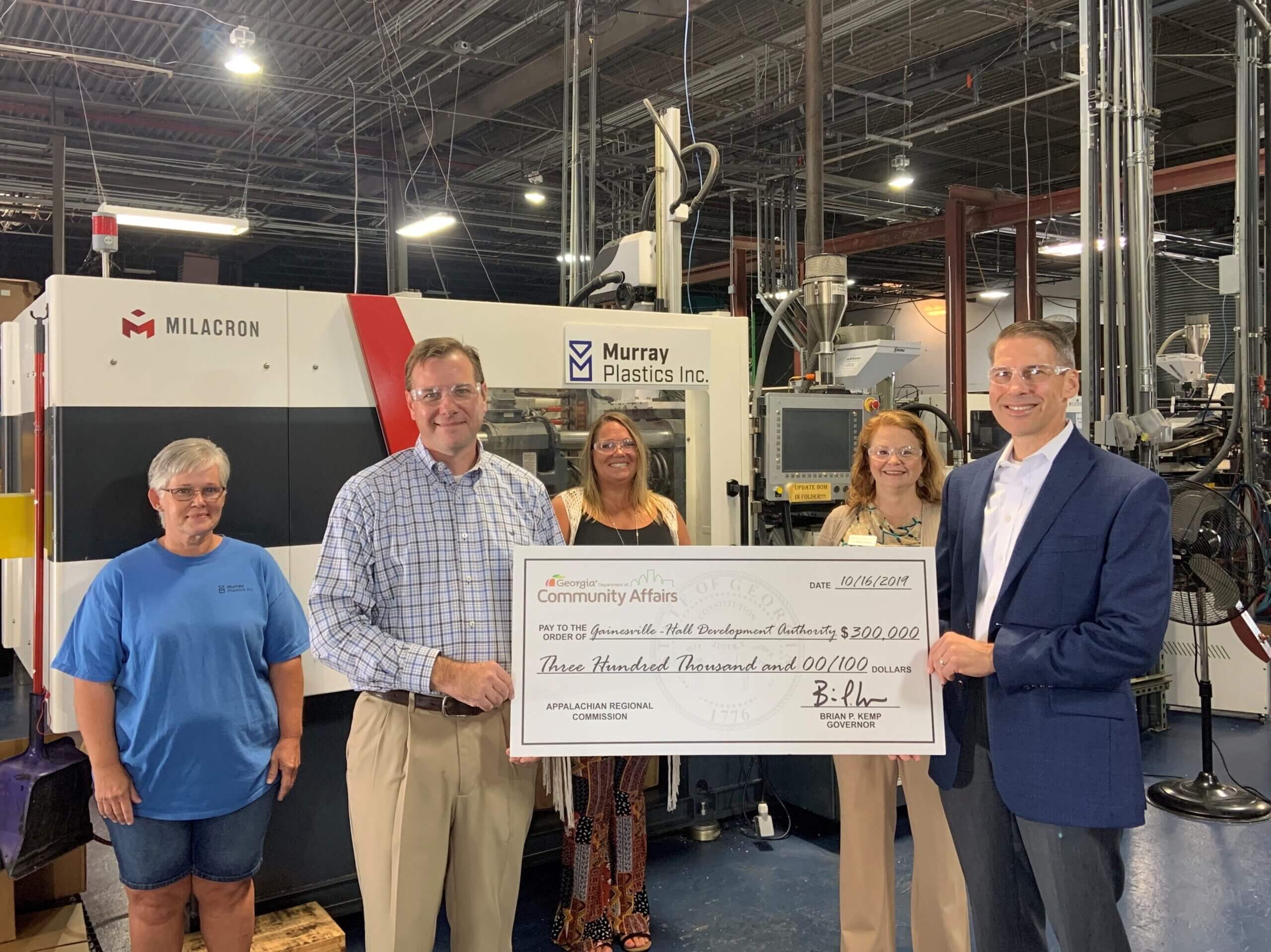When entrepreneurs explain how they got into their line of work, their stories rarely travel along a linear path. Contingencies derail even the best-laid plans, opportunities appear in unlikely places, and ambitions evolve over time. In this ever-changing landscape, the decisions entrepreneurs make (and don’t make) shape the trajectory of their businesses. Choice, not just capital, is the currency of the realm.
Bill Hall can still remember the fateful weekend when he decided to start
Murray Plastics, the company he still owns and operates.
Entrepreneurship wasn’t foreign to him. His grandfather had embarked on a career in manufacturing in the Rochester area, operating a metal stamping shop. Several years later, he transitioned to plastics, and since they had so many plastic parts running he and his son (Bill’s father) decided to bring plastic molding into the operation. This was an era captured by Mr. McGuire’s single word of advice for Benjamin Braddock in
The Graduate: plastics. Malleable, versatile, and virtually indestructible, there was a great future in this material. His family positioned itself at the vanguard of this burgeoning industry. Providing a wide range of services and products, they carved out a niche for themselves in molding film reels — a necessity for theaters screening movies and families using projectors.
The shop continued to prosper under careful management.
But the tides began to change in the 1970s. Costs were rising. Technological advance was leaving manual fabrication behind. Global competition was growing. As demand flagged, many domestic manufacturers could no longer survive. Thanks to continued interest in film reel production, the family business remained profitable. But his father was tired of supervising the shop day in and day out, and gradually outsourced the labor to other providers.
Bill witnessed this industry evolution firsthand. Initially, he was uninterested in the business his father and grandfather had worked in. As a college student, he aspired to a career in financial services.
A strong student, Bill doggedly pursued his career ambitions. He made good grades. He consulted closely with his advisor, who helped him secure recommendation for an internship with an international firm. They discussed the next steps: land at a reputable company after graduation, go back to school for an MBA, climb the corporate ladder, and don’t look back.
Leaving the office, Bill found himself thinking ahead — and looking back. He considered what life would look like if he went into high finance. It would be lucrative but demanding. He’d be travelling constantly, fretting over spreadsheets, and hustling to stay ahead in a hyper-competitive enterprise. Was that what he really wanted? Or would he be happier getting into the family business, controlling his own destiny, and navigating his way through the changing landscape of injection molding?
His resolution was firm that Sunday when he picked up the phone and dialed home.
“Dad, I’ve decided what I want to do with my life. I’m not taking the internship. I’m going to start my own business. And you’re going to be my first customer.”
Simple as that, Bill chartered Murray Plastics, naming it after the Rochester street where the original shop was located. He’d fill the orders for projector reels coming in to his dad’s operation. That would form the foundation of his enterprise, enabling him to ride out the waves and troughs of demand endemic to running an injection-molding business in America. The rest was up to Bill, who would have to seek out new clients, manage his labor force, and supervise production. It was a daunting proposition, but it’s a choice Bill doesn’t regret years later.
That momentous development began the first in a long series of choices that has helped position Murray Plastics as an industry leader. Follow along that trail, and you can begin to appreciate the business climate for injection molding, and get to know what makes Bill Hall tick.
The first challenge Bill encountered had to do with manufacturing space. He quickly determined to relocate the company. The neighborhood was in decline, surrounded by derelict buildings and plagued by crime. Taxes were soaring. Labor costs were high. The regulatory climate was stifling.
Buoyed by a healthier atmosphere down South, proximity to a growing metropolis in Atlanta, and a big contract with a Peachtree City-based client, Bill settled on Gainesville, Georgia as a new site. Even though that contract with the Peachtree City buyer never materialized, the decision has worked out well regardless. Real estate is more affordable. He’s found the business climate more agreeable, finding skilled laborers hasn’t been a challenge, and a steady stream of clients has found its way to his operation, which now employs over thirty workers.
Bill has also had to make some difficult choices to attract new clients. Although he still does a steady trade in film reel through
Tayloreel, it’s no longer the stable source of revenue it once was.
The perennial challenge is to get on the radar of companies who could use
injection-molding, but don’t know it yet. There are many possibilities Bill’s services offer to manufacturers, but they have to see that for themselves and appreciate the
expert craftsmanship Murray Plastics brings to the table.
It’s taken strategic decision-making to take advantage of these new opportunities. For a long time, the formula was simple: go to trade shows, list in the
Thomas Register of American Manufacturers, and get the word out to industries that use your technology. However, the pace of innovation sweeping the business landscape has rendered that model obsolete. Trade applications have become so varied and so specialized that few plastic injection mold companies can keep up. New startups may not see injection-molding as the solution they’re looking for. Targeting your next clients can be a tricky process.
In response, Bill has learned to plan carefully about how to approach a game where the rules are constantly changing. He still goes to shows, but he’s become selective about which ones he attends and how he presents his business. Outside of
his presence on ThomasNet (the current incarnation of the old registry) he’s turned to Rigmarole to lead all digital marketing efforts. In fact, business has almost doubled since bringing them into the fold.
Technology is opening up new vistas for industry development. In particular, the growth in 3-D printing has created a plethora of new opportunities. Many businesses need more precision engineering and volume than these innovative printers afford. As a result, they’ve been coming to Bill in droves, with ideas and rough sketches in hand. If they can get to him, he can help. The hard part is always getting them to see Murray Plastics as
the people who can make their dreams a reality.
It’s tough decisions — many of them made with limited information and under tight deadlines— that have brought Bill entrepreneurial success. He’s seasoned by experience, yet still learning in the challenging field of plastic injection molding. A lot has changed since that fateful weekend when he left a career track in high finance got on the path to running his own business. He has much to be proud of, a few regrets, and a bright future to look forward.
After all, even if he doesn’t know what’s to come, he knows it’s up to him to decide.



